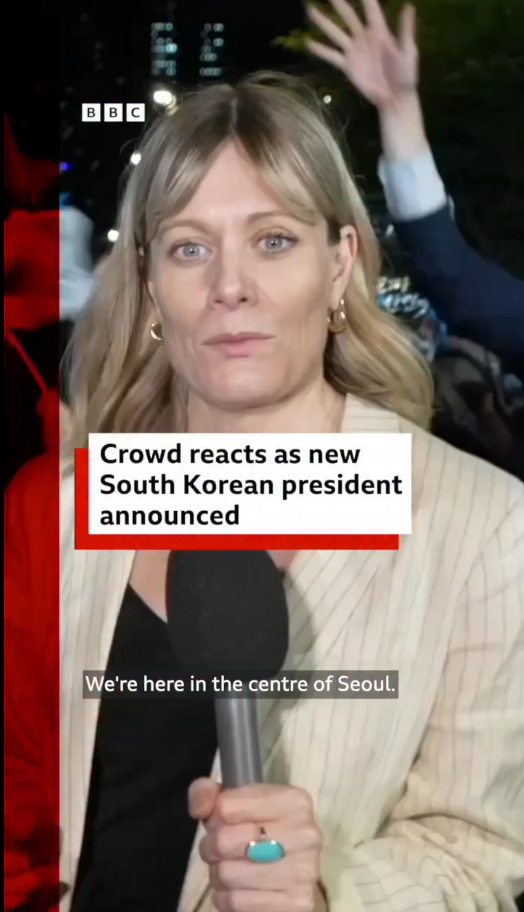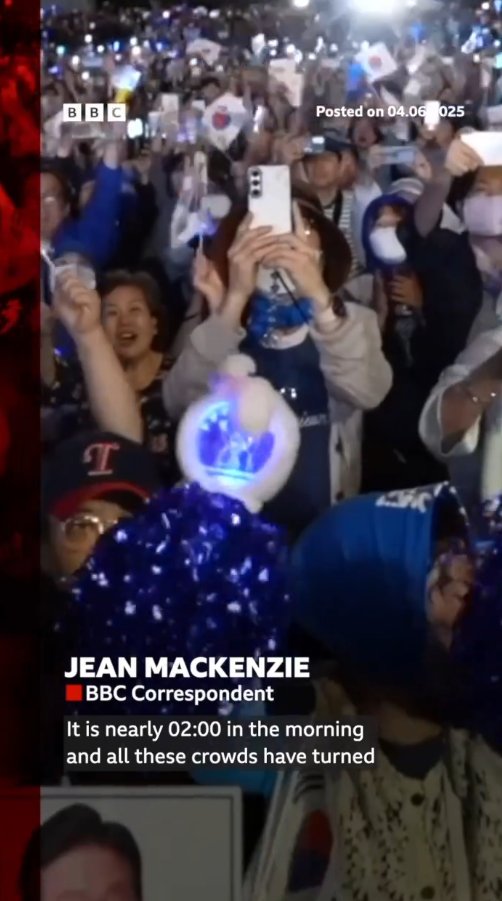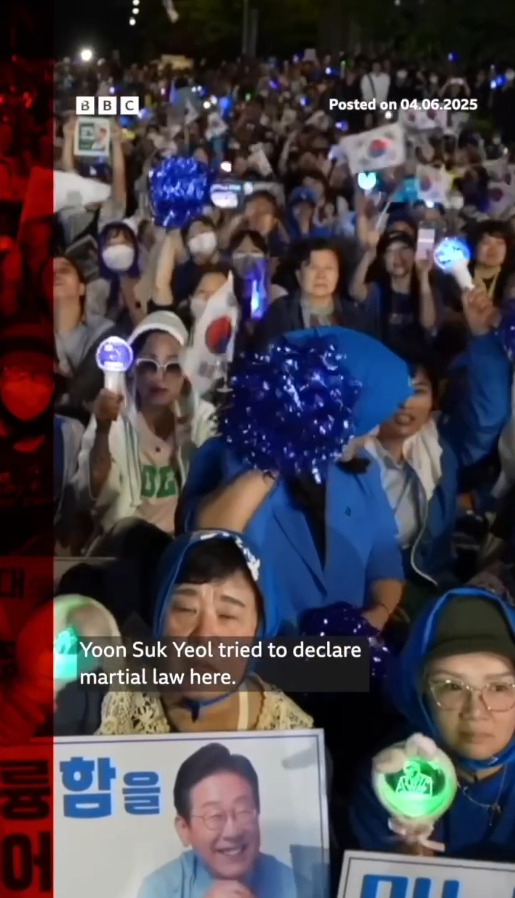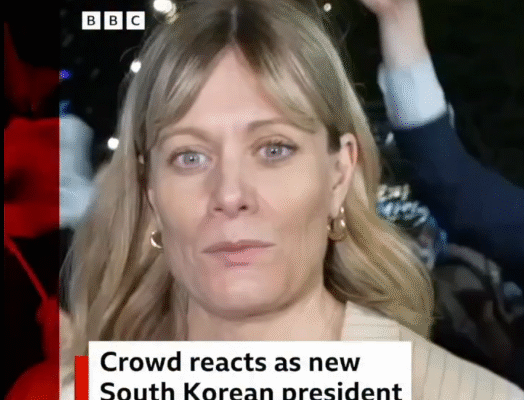
In a vibrant and historic moment for South Korea, tens of thousands of people gathered in the heart of Seoul to celebrate the election of Lee Jae-myung as the country’s new president. The atmosphere was electric, filled with cheers, national pride, and hopes for a new chapter in the nation’s future. Lee’s victory marks a significant milestone in South Korea’s political landscape, promising change and renewed energy as the country faces complex challenges both domestically and on the global stage.
A Historic Victory and Its Significance
Lee Jae-myung’s election comes after a highly competitive and closely watched presidential race. As a candidate, Lee positioned himself as a reformist, pledging to tackle inequality, boost economic growth, and strengthen South Korea’s role on the international stage. His supporters view him as a leader who can bring about much-needed change, particularly in addressing social welfare and housing issues, which have been key concerns for many citizens.
The crowds in Seoul reflected the diverse coalition that propelled Lee to victory. From young voters passionate about progressive reforms to older generations hopeful for stability and prosperity, the turnout was a testament to the broad appeal of his message.
The Celebration in Seoul: Scenes and Emotions

Seoul’s city center became a sea of vibrant colors and spirited chants as supporters gathered to witness the historic moment. Streets near Gwanghwamun Plaza, a traditional hub for political demonstrations and celebrations, overflowed with enthusiastic citizens waving flags, holding banners, and singing patriotic songs.
Many attendees expressed a sense of relief and optimism. “We believe Lee Jae-myung will address the economic disparities that have grown over the years,” said Kim Min-ji, a university student who joined the celebrations. “His commitment to social justice and fair housing policies gives us hope.”
The jubilant crowds also reflected the significance of democratic participation in South Korea. Voter turnout had been notably high in the election, demonstrating the public’s eagerness to engage with the political process and influence the country’s direction.
Lee Jae-myung’s Campaign: Key Promises and Platforms

Throughout his campaign, Lee focused on several core issues that resonated with voters. Among these were:
- Economic Reform: Lee proposed policies aimed at creating more equitable economic opportunities, including raising the minimum wage, expanding social safety nets, and investing in innovation and technology sectors.
- Housing and Urban Development: Addressing South Korea’s housing affordability crisis was a central theme. Lee pledged to increase public housing projects and implement measures to curb real estate speculation.
- Climate and Environment: Recognizing global concerns, Lee promised to advance South Korea’s green energy initiatives and commit to carbon neutrality goals.
- Diplomatic Relations: Lee signaled his intent to pursue a balanced foreign policy, strengthening ties with the United States and China, while continuing to advocate for peace and stability on the Korean Peninsula.
Challenges Ahead for the New Administration
While celebrations marked the beginning of Lee’s presidency, experts and citizens alike acknowledge the substantial challenges ahead. South Korea faces an array of domestic and international issues that will test the new leader’s resolve and capabilities.
Domestically, economic inequality remains a pressing concern, alongside demographic challenges such as an aging population and low birth rates. Housing affordability and youth unemployment also demand urgent attention.
On the international front, geopolitical tensions on the Korean Peninsula persist. Relations with North Korea continue to be fraught, with ongoing concerns over nuclear capabilities and military provocations. Additionally, navigating the strategic rivalry between the United States and China will require diplomatic finesse.
Lee’s ability to deliver on his promises while managing these complex dynamics will define his administration and influence South Korea’s future trajectory.
Public Expectations and Political Climate
The public’s expectations for Lee Jae-myung are high. Many citizens hope that his administration will prioritize social equity and economic opportunity. There is also anticipation around how Lee’s leadership style — often described as pragmatic yet bold — will impact policy decisions.
Political analysts note that Lee’s victory represents both continuity and change. While his party has governed in various capacities before, Lee’s reformist stance marks a shift toward addressing long-standing issues more aggressively.
The peaceful and enthusiastic celebrations in Seoul highlight the vibrancy of South Korea’s democracy and the public’s investment in shaping the nation’s path forward.
The Role of Social Media and Public Engagement
Social media played a significant role in mobilizing support for Lee Jae-myung. Campaign messages, debates, and policy discussions were widely shared online, helping to engage younger voters and create a dynamic dialogue.
During the celebration, live streams and social media posts captured the energy of the crowds, spreading the excitement beyond the physical gatherings in Seoul to a global audience.
This digital engagement underscores how modern political campaigns in South Korea are evolving, leveraging technology to connect with constituents and foster transparency.
Looking Forward: Lee Jae-myung’s Presidency Begins
As Lee Jae-myung takes office, the nation watches with cautious optimism. The celebrations in Seoul represent not only a victory for one man but also a moment of collective hope for millions of South Koreans.
His presidency holds the promise of addressing critical social and economic issues while maintaining South Korea’s prominence on the global stage. The coming months will be pivotal as policies unfold and new initiatives are implemented.
For now, the jubilant scenes in Seoul stand as a powerful reminder of democracy in action — a celebration of the people’s voice and the beginning of a new chapter in South Korea’s vibrant history.



